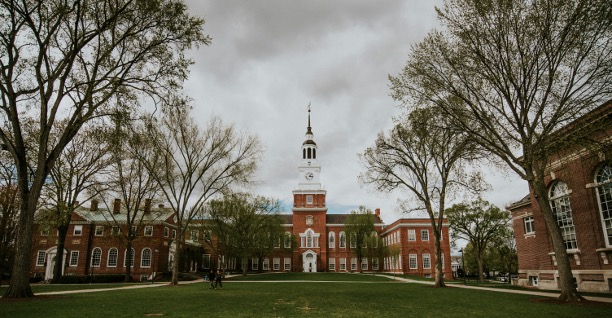Policymakers’ increasing scrutiny has transformed the role of large universities’ federal relations teams and required even the smallest of schools to prepare for congressional scrutiny.
By Kent Holland and Natalie Farr
Excerpted from University Business
Long gone are the days when colleges and universities could visit Capitol Hill and expect universal support for campus grants. Today, when higher education leaders speak with senators and representatives, they’re not greeted with promises of more funding but pointed questions about antisemitism on campus, their endowments, DEI policies and more.
In short, what happens on campus shapes what happens in Congress. This shift has transformed the role of large universities’ federal relations teams and required even the smallest of schools to prepare for congressional scrutiny. In an era where a handful of social media posts can lead to a Capitol Hill hearing, developing a plan before a crisis is critical.
With Republicans poised to take control of the Senate in November and a handful of Democrats growing more skeptical of higher education, there’s no reason to expect Congress to wholeheartedly embrace colleges and universities in the coming months and years. Instead, college presidents and their staffs should use the next few months to develop a strategy for responding to five key issues:
Combatting antisemitism: With last school year marked by pro-Palestinian protests and recent polling showing Jewish students feel unsafe on campus, Republicans at the state and local level now have a laser focus on antisemitism. University leaders will want to be prepared to explain — in detail — how they’re protecting Jewish students and preventing antisemitic harassment on their campuses.
Shifting federal fiscal policies: Members of Congress are increasingly interested in how universities fund their endowments and what those funds are used for. Congress already created a 1.4 percent excise tax on certain endowments in the 2017 Tax Cuts and Jobs Act. The current environment will only spark further conversation on taxing these funds. Simultaneously, House Republicans have promised to closely analyze federal funding for universities following this spring’s protests. This combination of factors creates a uniquely difficult environment for higher education institutions seeking federal funding.
Mitigating Chinese influence: One of the few areas of agreement on Capitol Hill over the past few years is that China’s growing dominance poses a threat to the U.S. Now, a bipartisan set of policymakers have turned their focus to colleges and universities that partner with China, as reports of the nation running covert influence campaigns on campus grow more common. More than 200 schools had a collective 2,900 contracts with Chinese businesses — worth $2.32 billion — between 2012 and 2024, according to the Wall Street Journal. Expect Congress to call for more information about these deals because of concerns about national security and IP theft.
Managing DEI: Many Republicans argue Diversity, Equity and Inclusion programs are ineffective at best and actively harmful at worst, leading to more divisiveness and rising antisemitism on campus. Higher education administrators should be ready to discuss their programs — and face tough questions about them.
Promoting Free Speech: Protecting free speech on campus is a perennial topic of concern for Republicans, but Democrats now too are now growing uneasy about campus climates that discourage open debate. As with a number of issues on this list, the recent protests have reenergized these conversations, meaning college representatives must have answers prepared about their efforts.
With students home for the summer, campus leaders should use the time to develop a holistic strategy for managing their reputation on Capitol Hill. Just as students who study for finals do better, so too do higher education leaders who have a plan for the congressional attention that will soon be coming their way.
About Kent
Kent is Partner and Strategic Communications Co-lead, where he specializes in campaign management, corporate reputation, crisis communications, executive positioning, media relations and digital advertising. He works with a range of clients across sectors and is a leader in the company’s technology, financial services and higher education practices. Drawing upon his decades of experience working in media relations, Kent directs integrated communications and advertising strategies. He has helped scores of clients mitigate risks, improve their reputations, and extend their brand to the stakeholders who matter the most. Prior to joining Avoq, Kent ran his own agency for 15 years. He also worked as a book publicist for Random House, representing several New York Times–bestselling authors.
Connect with Kent on LinkedIn.
About Natalie
Natalie is a Senior Vice President on Avoq’s Government Relations team. Her 15-year career in the House, Senate and executive branch makes her an ideal advocate who looks at a given issue from multiple perspectives, giving clients a 360-degree view of how to achieve a goal. Since joining Avoq, Natalie spent most of her time developing strategies to advance client interests across the House, Senate and White House, with a particular focus on GOP Senate offices. She has managed numerous policy campaigns on Capitol Hill, including issues ranging from advancing the use of clean energy derived from animal waste, to managing a coalition advancing a national standard regarding compensation for college athletes’ name, image and likeness. Throughout the pandemic, she advised clients on how to successfully engage Republicans on vital issues of the day such as broadband access for remote learning, and how AI plays an important role in predictive models related to COVID-19 cases, vaccinations and the spread of the illness. Natalie has prepared CEOs and high-level executives to achieve their goals on Capitol Hill and having worked as the Chief of Staff for a former Chairman of the National Republican Senatorial Committee, she frequently briefs clients on the political outlook in the Senate.
Prior to Avoq, Natalie worked for Sen. Cory Gardner of Colorado for eight years, including as his Chief of Staff in both the House and the Senate. Before becoming his Chief, she worked on Gardner’s energy and telecommunications portfolios as his House Legislative Director. Prior to that, Natalie worked for the House Republican Study Committee, providing policy analysis on legislative issues. She has also worked on Congressional Affairs at the Department of Labor where she handled international visa issues, for former Rep. John Shadegg of Arizona, and for former Sen. Jon Kyl of Arizona.




